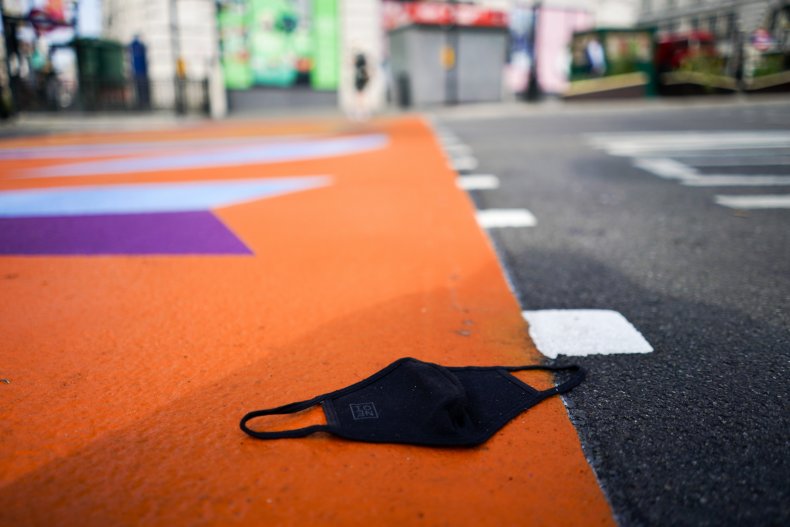The Netherlands Asks Citizens to Work From Home, Lifting Lockdown an 'Error Of Judgement'
Dutch Prime Minister Mark Rutte asked citizens to return to working at home as the Netherlands has seen a surge in COVID-19 infection rates, the Associated Press reported. Case numbers rose quickly in the country after the Dutch government loosened lockdown restrictions in June, even permitting nightclubs to reopen.
Rutte called the decision to ease lockdown regulations an "error of judgement" and apologized as he commanded nightclubs to shutter again until the middle of August. Over the past two weeks, the seven-day average for daily infections grew from less than five to almost 59 new infections per 100,000 people on July 18, the Associated Press reported.
Health Minister Hugo de Jonge said the Netherlands' daily infection numbers were "too high," but seemed to be steadying.
For more reporting from the Associated Press, see below:

Albania's small tourist businesses are holding a 24-hour strike, closing restaurants and bars to protest against the government's continued imposition of an overnight curfew.
Scores of restaurant and bar owners in Vlora, 150 kilometers (90 miles) southwest of the capital, Tirana, closed their premises Monday asking for a later curfew or none at all. A similar protest took place in northwestern Lezha.
The government previously set an overnight curfew from 10 p.m. to 6 a.m. That will change to start at 11 p.m. from Tuesday, but many owners want a later time or no curfew at all. They say it takes their clients away too early during the summer tourist period.
Prime Minister Edi Rama turned down their request saying their loud music in urban areas is environmental pollution.
After significant losses last year due to the pandemic, Albanian businesses are trying this year to fully exploit its pristine beaches on its 480-kilometer (300-mile) coastline along the Adriatic and Ionian Seas. During the past few years tourism has turned into a key industry for one of Europe's poorest countries.
Albania has registered some 130,000 coronavirus cases and 2,456 deaths so far but no deaths have been reported in the past month or so. During the same period the highest number of the daily new cases was 21 on Sunday.
Meanwhile, Iran on Monday imposed a week-long lockdown on the capital, Tehran, and the surrounding region as the country struggles with another surge in the coronavirus pandemic, state media reported.
The lockdown — the nation's fifth so far — will begin on Tuesday and last until next Monday. All bazars, market places and public offices will close, as well as movie theaters, gyms and restaurants in both Tehran province and the neighboring province of Alborz.
Iran reported 25,441 new cases on Monday and 213 deaths over the past day, bringing the overall death toll to 87,374 from among more than 3.5 million confirmed cases in the pandemic.
During an earlier surge in cases, in April, Iran reported the highest daily number of cases, 25,582. At the time, its daily death tolls surged to around 400, below the grim record of 486 reached last November.
Iranian authorities have lately been warning about a new surge, fueled by the fast-spreading delta variant. In sanctions-hit Iran, which has the highest COVID-19 death toll in the Middle East, less than 2% of the population of 84 million has received both doses, mainly of the imported Russian and Chinese vaccines.
In England, businesses warned Monday that a "pingdemic" of people receiving notifications on their phones telling them to self-isolate threatens to lead to widespread staff shortages and mayhem across the economy just as lockdown restrictions are lifted.
Though nightclubs and other entertainment venues cheered the lifting of all remaining restrictions on social contact, they are increasingly grappling with staff shortages as the National Health Service's test and trace app informs people they came into close proximity with someone who tested positive for the coronavirus.
Supermarket chain Iceland and pub owner Greene King had to close certain locations due to the self-isolation requirements affecting their staffs.
There are also warnings of shortages of goods in supermarkets, cuts in production at factories and potential transport chaos, as illustrated by Saturday's closure of the Metropolitan Line on the London Underground, due to key staff being pinged.
Mike Lynch, general secretary of The Rail, Maritime and Transport union warned that England's so-called "Freedom Day" could "very easily collapse into chaos day."


